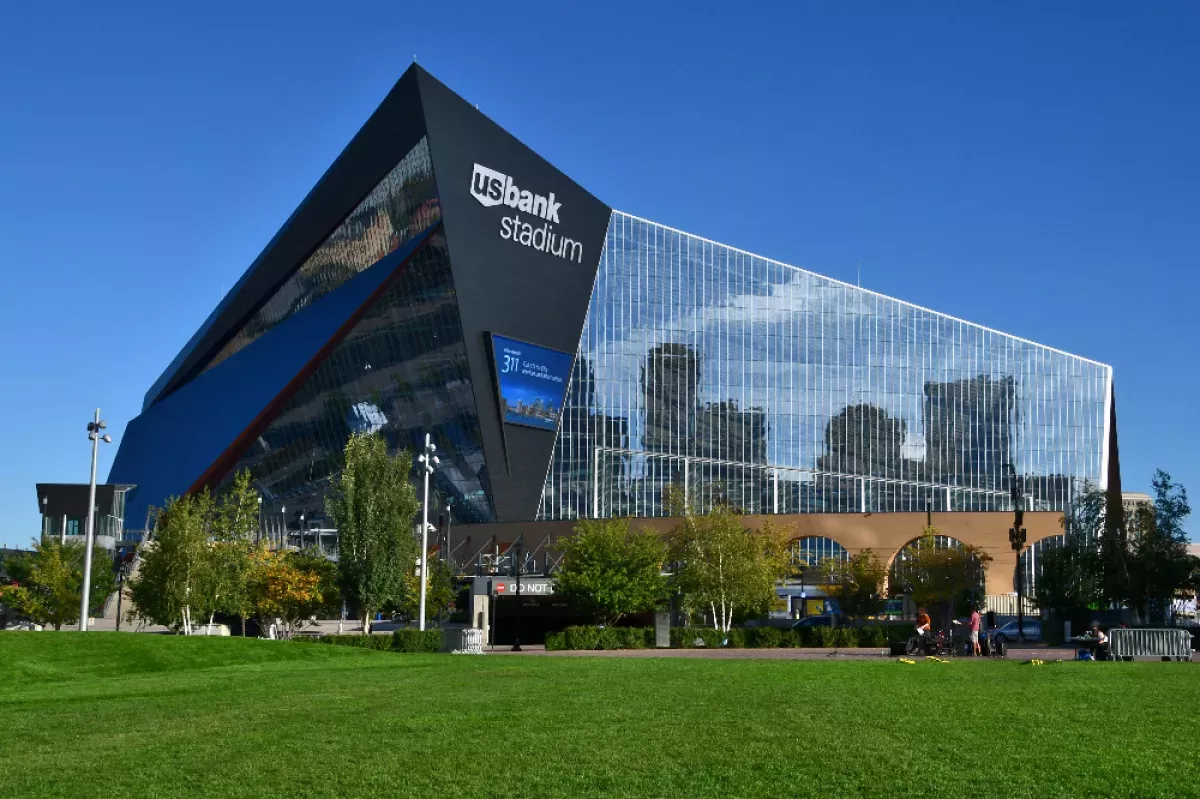U.S. Bank Stadium, located in downtown Minneapolis, Minnesota, is a multi-purpose indoor stadium. Opened in 2016 on the site of the former Metrodome, it serves as the home field for the NFL's Minnesota Vikings. The stadium also hosts early-season college baseball games for the University of Minnesota Golden Gophers.
August 13, 1954: Formation of the Metropolitan Sports Area Commission
The Metropolitan Sports Area Commission (MSAC) was established on August 13, 1954, with the goal of overseeing the construction and operation of Metropolitan Stadium.
1956: Metropolitan Stadium Opens
Metropolitan Stadium opened its doors in 1956.
1977: Metropolitan Sports Facilities Commission Established
The Metropolitan Sports Facilities Commission (MSFC) was established in 1977 to oversee the construction of the Hubert H. Humphrey Metrodome.
1977: Metropolitan Sports Facilities Commission Takes Over Metropolitan Stadium
Upon its formation in 1977, the Metropolitan Sports Facilities Commission assumed control of the operations of Metropolitan Stadium.
August 1979: Vikings Sign Lease for the Metrodome
The Vikings and the Metropolitan Sports Facilities Commission (MSFC) signed a lease agreement in August 1979, securing the team's presence at the Metrodome.
1981: Metrodome Opening
The Metrodome opened its doors in 1981.
1982: Vikings Begin Playing at the Metrodome
The Minnesota Vikings began playing their home games at the Metrodome in 1982.
2002: Joint Vikings/University of Minnesota Football Stadium Proposal Fails
A proposal for a shared football stadium between the Vikings and the University of Minnesota was put forth in 2002 but ultimately fell through.
2005: Vikings Rank Low in Local Revenues
In 2005, the Vikings found themselves ranked 30th out of 32 NFL teams in terms of local revenue generation.
2005: Zygi Wilf Becomes Vikings Owner
Zygi Wilf acquired ownership of the Minnesota Vikings in 2005.
April 19, 2007: Initial Stadium Plans Unveiled
On April 19, 2007, the MSFC and the Vikings presented their initial vision for a new stadium and surrounding urban development, aiming for a 2012 completion. The plans included a retractable roof stadium with a capacity of 73,600, integrated transportation improvements, residential and commercial spaces, and a focus on enhancing the surrounding urban landscape.
May 2007: Vikings Purchase Downtown Parking Lots
In May 2007, the Vikings expanded their real estate holdings by acquiring three parking lots in the downtown area.
2007: Estimated Cost of New Stadium
In 2007, the projected cost for the downtown Minneapolis stadium was estimated at $953.916 million, with $616.564 million allocated for the stadium itself, $200.729 million for a retractable roof, and additional costs for parking, land, and inflation adjustments.
September 2008: Study Highlights Economic Benefits of NFL Teams
In September 2008, a study across 38 U.S. cities revealed a correlation between NFL team wins and increased personal income for residents, suggesting positive economic impact associated with successful NFL franchises.
2008: Study Highlights Media Influence on Stadium Initiatives
A study conducted in 2008 revealed the significant influence that media coverage can have on stadium initiatives, particularly highlighting the role of an uncritical press.
December 2009: New Stadium Proposal with Sliding Roof Unveiled
In December 2009, a revised stadium proposal featuring 65,000 seats and a sliding roof was presented. The estimated cost was $870 million, or $770 million without the sliding roof. The Vikings officials boycotted this presentation.
2009: TCF Bank Stadium Opens
The University of Minnesota opened its own football stadium, TCF Bank Stadium, in 2009.
December 12, 2010: Metrodome Roof Deflation Reignites Stadium Debate
The deflation of the Metrodome's roof on December 12, 2010, forced the Vikings to relocate their final two home games. This incident brought renewed urgency to the stadium debate.
2010: Berwald Roofing Co. OSHA Violations
Berwald Roofing Co., the company involved in the 2015 construction accident, had been cited multiple times for OSHA violations since 2010.
2010: Minnesota Twins Move to Target Field
The Minnesota Twins baseball team relocated to Target Field in 2010.
May 2011: Ramsey County Proposed as Stadium Location
Ramsey County officials announced an agreement with the Vikings in May 2011 to locate the new stadium at the former Twin Cities Army Ammunitions Plant in Arden Hills. This proposal, subject to legislative and local approvals, outlined an $884 million stadium project.
August 2011: Initial Completion Date
August 2011 was the initially proposed completion date for the new stadium.
2011: Vikings' Lease at the Metrodome Expires
The Vikings' lease with the Metropolitan Sports Facilities Commission (MSFC) for the Metrodome expired in 2011.
March 1, 2012: Agreement Reached for New Stadium on Metrodome Site
On March 1, 2012, Governor Dayton announced a significant agreement to construct a new stadium on the Metrodome site. The $975 million project, with shared funding, aimed to utilize part of the existing Metrodome footprint and minimize disruption during construction.
May 14, 2012: Stadium Funding Bill Passed
On May 14, 2012, the stadium funding bill, which included funding from electronic pulltabs, was passed and signed, with initial revenue projections set at $34 million for 2013.
May 2012: Original Stadium Bill Passed
The original stadium bill, passed in May 2012, estimated electronic pulltab revenue at $34 million.
May 25, 2012: Minneapolis City Council Approves New Stadium Funding
On May 25, 2012, The Minneapolis City Council gave their approval for the new stadium funding, solidifying the project's financial foundation.
August 2012: Bids Received for Stadium Design
In August 2012, The Minnesota Sports Facilities Authority (MSFA) received bids from five architectural and engineering firms for the stadium's design.
September 28, 2012: HKS, Inc. Selected as Architect
On September 28, 2012, HKS, Inc. was selected as the architect for the new stadium project.
2012: Five-Year Window to Host MLS Team
In 2012, the legislation to finance the stadium included a five-year window for the Vikings to host a Major League Soccer team, leading to the Vikings' ownership launching a bid for an expansion franchise.
2012: Minnesota Sports Facilities Authority Established
The Minnesota Sports Facilities Authority (MSFA) was founded in 2012 by the Minnesota Legislature, succeeding the Metropolitan Sports Facilities Commission.
March 2013: Projected Revenue Further Reduced
In March 2013, the projected revenue from electronic pulltabs for 2013 was further reduced to $1.7 million, a 95% reduction from the original estimate.
May 13, 2013: Design of New Stadium Unveiled
On May 13, 2013, the Minnesota Sports Facilities Authority (MSFA), the Minnesota Vikings, and HKS Sports & Entertainment Group revealed the design of the new stadium.
October 2013: Original Construction Start Date
Construction was initially slated to begin in October 2013 but was delayed.
December 3, 2013: Construction Begins
Construction of the stadium began on December 3, 2013, after a delay due to an investigation into the Wilf's finances.
2013: Electronic Pulltab Revenue Projections
In 2013, the projected revenue from electronic pulltabs was significantly revised downward multiple times.
2013: First Revision of Electronic Pulltab Revenue Projections
Six months after the stadium funding bill was passed, the Minnesota Office of Management and Budget revised the projected 2013 revenue from electronic pulltab games down by 51% to $16 million.
2013: Last AMA Supercross Round at Metrodome
The Metrodome hosted the last AMA Supercross round in Minneapolis in 2013 before the event moved to U.S. Bank Stadium.
2013: Metrodome Closure
The Metrodome was closed in 2013 to make way for the construction of U.S. Bank Stadium.
2013: Vikings Play Final Season at Metrodome
The Vikings played their final season at the Metrodome in 2013 before its demolition, marking the end of an era for the team and the iconic venue.
January 2014: Lawsuit Filed to Halt Stadium Construction
January 2014 saw a legal challenge to the stadium project when a lawsuit questioned the constitutionality of its funding plan, leading to a delay in bond sales and potential cost overruns. The lawsuit was later dismissed.
November 14, 2014: Awarded Men's Basketball Final Four
The stadium was selected to host the men's basketball Final Four in 2019 on November 14, 2014.
December 2014: Renderings for Soccer Configuration Presented
In December 2014, the Vikings presented renderings of the stadium configured for soccer, showcasing its potential as a home for a Major League Soccer team.
2014: Demolition of the Metrodome
The Metrodome was demolished in early 2014, making way for the construction of U.S. Bank Stadium.
March 2015: Budget Estimate for U.S. Bank Stadium
By March 2015, the estimated total budget for U.S. Bank Stadium was projected to be $1.061 billion.
May 2015: Bid for College Football Playoff
In May 2015, Governor Mark Dayton announced a bid to host the College Football Playoff National Championship in 2020.
June 15, 2015: U.S. Bank Acquires Naming Rights
On June 15, 2015, U.S. Bank acquired the naming rights to the stadium for $220 million over 25 years.
August 27, 2015: Fatal Construction Accident
On August 27, 2015, a worker died and another was injured in a fall during construction on the U.S. Bank Stadium roof.
November 4, 2015: Loses Bid for College Football Playoff
On November 4, 2015, it was announced that New Orleans would host the 2020 College Football Playoff National Championship, marking the first losing bid for a major sporting event at the stadium.
June 17, 2016: U.S. Bank Stadium Deemed Substantially Complete
On June 17, 2016, construction on U.S. Bank Stadium was declared substantially complete, marking a major milestone in the project.
July 2016: Pulltab Revenue Soars
In July 2016, pulltab revenue was reported to be "soaring," leading to optimism about its continued growth.
July 20, 2016: Awarded X Games
U.S. Bank Stadium and Minneapolis were chosen to host the summer X Games in 2017, 2018, and 2019 on July 20, 2016.
August 19, 2016: Luke Bryan Concert
Country artist Luke Bryan performed at U.S. Bank Stadium on August 19, 2016, as part of the stadium's opening weekend festivities.
August 28, 2016: First NFL Preseason Game
The first NFL game at the stadium was a preseason game against the San Diego Chargers on August 28, 2016, which the Vikings won 23-10.
September 18, 2016: First NFL Regular Season Win
The Vikings secured their first NFL regular season win at the stadium on September 18, 2016, defeating the Green Bay Packers 17-14.
October 23, 2016: US Women's National Soccer Team Friendly
The United States women's national soccer team played a friendly match against Switzerland on October 23, 2016, at U.S. Bank Stadium. The US team won with a score of 5-1.
2016: Opening of U.S. Bank Stadium
In 2016, U.S. Bank Stadium opened its doors in downtown Minneapolis, Minnesota, replacing the Hubert H. Humphrey Metrodome.
February 24, 2017: First Baseball Game
On February 24, 2017, U.S. Bank Stadium hosted its first-ever baseball game. The game was between Century College and Iowa Central. This was followed by the University of Minnesota's first indoor home game since the Metrodome, when they played against Seattle University later that day.
2017: AMA Supercross Championship Returns
The AMA Supercross Championship began hosting a round at U.S. Bank Stadium in 2017, marking the return of the event to Minneapolis after last being held at the Metrodome in 2013.
2017: Fiscal Year 2013-2017 Forecast
The Minnesota Office of Management and Budget's updated forecast for fiscal years 2013 to 2017 included a revised projection for revenue from charitable gambling sources.
2017: First Year Hosting X Games
The stadium hosted the summer X Games for the first time in 2017.
January 14, 2018: First Playoff Game and "Minneapolis Miracle"
The stadium hosted its first playoff game on January 14, 2018, where the Vikings defeated the New Orleans Saints with a last-second touchdown catch dubbed the "Minneapolis Miracle."
February 4, 2018: Super Bowl LII Hosted at U.S. Bank Stadium
U.S. Bank Stadium hosted Super Bowl LII on February 4, 2018, where the Philadelphia Eagles emerged victorious.
2018: Second Year Hosting X Games
The stadium hosted the summer X Games for the second consecutive year in 2018.
2019: LCMS Youth Gathering
In 2019, the LCMS Youth Gathering took place at several venues in downtown Minneapolis, including U.S. Bank Stadium.
2019: Hosts Men's Basketball Final Four
The stadium hosted the Final Four of the 2019 NCAA Division I men's basketball tournament.
2020: X Games Cancelled Due to Pandemic
The stadium was scheduled to host the X Games in 2020, but the event was canceled due to the COVID-19 pandemic.
2021: ELCA Youth Gathering Postponement
The ELCA Youth Gathering, originally scheduled for 2021, was postponed due to COVID-19. It was initially rescheduled for 2022 at U.S. Bank Stadium but was later cancelled and moved to New Orleans in 2024.
2022: ELCA Youth Gathering Cancellation
The ELCA Youth Gathering, which was planned to be held at U.S. Bank Stadium in 2022, was cancelled due to the ongoing COVID-19 pandemic and moved to New Orleans in 2024.
January 2023: Proposal to Pay Off Stadium Debt
By January 2023, electronic pulltab revenue had increased enough for Governor Tim Walz to propose paying off the outstanding bond debt from the state's contribution to the stadium cost.
August 2023: U.S. Bank Stadium Named Best Venue in the NFL
In August 2023, The Athletic bestowed the honor of "best venue" in the NFL upon U.S. Bank Stadium.
Mentioned in this timeline

Basketball is a team sport played on a rectangular court...
World Wrestling Entertainment WWE is a prominent American professional wrestling...
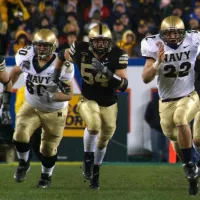
College football is a popular amateur sport in the United...
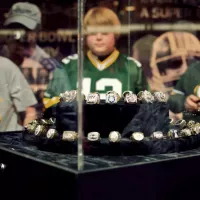
The Super Bowl is the annual championship game of the...

Inflation in economics signifies a rise in the average prices...
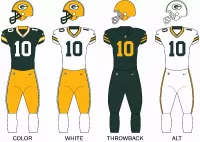
The Green Bay Packers are an NFL team based in...
Trending
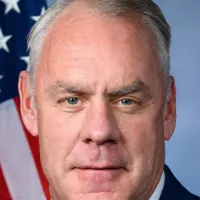
27 minutes ago Ryan Zinke, Montana Representative, Announces Retirement; Won't Seek Reelection in Upcoming Term
28 minutes ago US Strikes Iran After Oil Flow Disruption Attempts: Khamenei Compound Damaged.

28 minutes ago Kirsten Dunst stuns at Actor Awards 2026, supporting Jesse Plemons with bold fashion.

1 hour ago Robby Fabbri Joins Minnesota Wild After Waiver Claim From St. Louis.

1 hour ago Dave Mustaine Reflects on Metallica's Impact and Megadeth's Success; Lomenzo on 'Ride the Lightning'
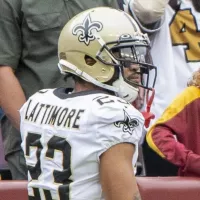
1 hour ago Commanders Release Marshon Lattimore: $18.5M Saved, Four-Time Pro Bowler Released.
Popular

Jesse Jackson is an American civil rights activist politician and...

Hillary Diane Rodham Clinton is a prominent American politician lawyer...

Jim Carrey is a Canadian-American actor and comedian celebrated for...

XXXTentacion born Jahseh Dwayne Ricardo Onfroy was a controversial yet...

Kashyap Pramod Patel is an American lawyer who became the...

Barack Obama the th U S President - was the...
